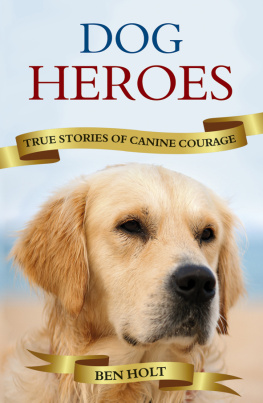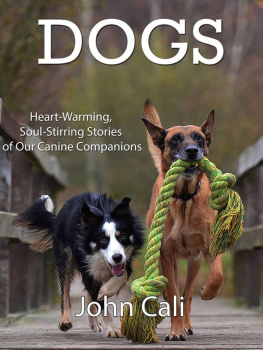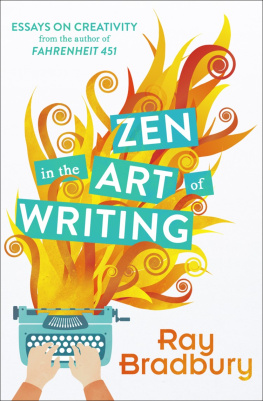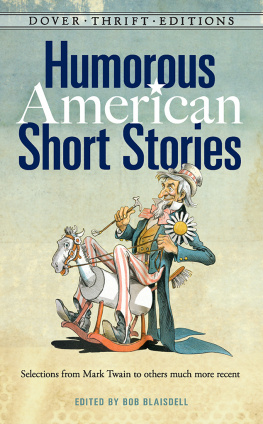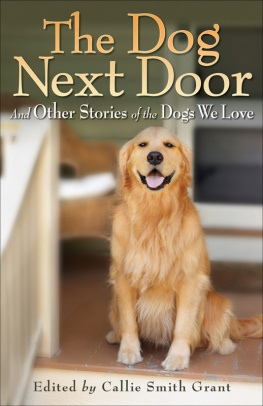A Faded Photograph
From My Dog Skip
BY WILLIE MORRIS
M Y DOG SKIP, from which this chapter is taken, is one of the most charming autobiographies ever written. In it, Willie Morris tells us of his life in Yazoo City, Mississippi, in the golden years before the Second World War. It is idyllic, funny, sweet. And whether he was playing football or raising a kitten, his constant companion was ... his dog Skip.
Eventually, Morris left the slow meander of southern life to become the editor of one of Americas leading literary magazines, Harpers Magazine, and a prominent writer and essayist.
This selection was made for the very good reason that I love it. I love the description of Skips football prowess, I love the exceptional conversations Skip has with his family, and, most of all, I love the picture of Skip driving down the road in the old green DeSoto, amazing the church-going folk.
I CAME ACROSS A photograph of him not long ago, his black face with the long snout sniffing at something in the air, his tail straight and pointing, his eyes flashing in some momentary excitement. Looking at a faded photograph taken more than forty years before, even as a grown man, I would admit I still missed him.
It was 1943. I was nine years old and in the third grade when I saw him for the very first time. I had known we were getting him. My father had ordered him from a dog breeder he had heard about in Springfield, Missouri. Daddy had picked him up at the Illinois Central train depot, and when I came home that day from school he had just put the wire portable kennel on our back porch. I opened the door to the box and looked inside. I saw a little puppy drinking water from a container attached to the bottom. He glanced up at me.
Come here, boy, I said.
He walked on unsteady legs toward me. I was sitting on the floor of the porch when he came out. He jumped into my lap and began nuzzling my hand with his nose. When I leaned toward him, he gave me a moist lick on my chin. Then he hugged me.
I led him into the house and gave him some puppy food in a dish. Then I followed him as he gingerly explored every room in the house. That night he jumped into my bed and stared at me, as if he were looking me over. Then, perhaps because he missed his mother in Missouri, he went to sleep in my arms. I was an only child, and he now was an only dog.
This was the first of our many days and years together. We named him Skipper for the lively way he walked, but he was always just Skip to me.
We had had a whole string of dogs before. When I was a very little boy we had big bird dogs, and then two purebred English smooth-haired fox terriers like this one, and I got to know all about dogs, a most precocious experttheir funny or crazy moods, how they looked when they were hungry or sick, when they were ready to bite and when their growling meant nothing, what they might be trying to say when they moaned and made strange human noises deep in their throats.
None of those other dogs ever came up to this one. You could talk to him as well as you could to many human beings, and much better than you could to some. He would sit down and look you straight in the eye, a long, mesmerizing gaze, and when he understood what you were saying he would turn his head sideways, back and forth, oscillating his whole body like the pendulum on a clock. Before going to sleep at night, with him sitting next to my face on the bed as he always did in such hours, I would say, First thing tomorrow I want you to get your leash and then come get me up, because were gonna get in the car and go out to the woods and get some squirrels, and the next morning sure enough he would get his leash, wake up both my father and me, walk nervously around the house with the leash in his mouth while we ate breakfast, and then lead us out to the car. Or I could say, How about a little swim? and his face would light up and he would push open the back door with his paws and escort me the quarter of a mile down the back alleyway to the swimming hole under the cypress near the bayou. Or, Bubbas comin over here today, and were gonna play some football, and he would listen closely to this, and go out and wait around in front of the house and pick up Bubbas scent a block down the street and come tell me he was on his way. Or, Skip, how about some catch? and he would get up and walk into the front room, open a door in the antique cabinet with his improbable nose, and bring me his tennis ball.
I watched him grow up from the puppy who came to us from Missouri to the sleek, dexterous, affectionate creature who could do all these things, and more. He knew my father by the name of Big Boss. My mother was Bossie, and I was Little Boss or, interchangeably, Willie. (I called him, depending on the mood, Skip, Old Skip, and Boy. I have learned that when you love somebody, you will address him or her by different names.) Sometimes my father would hide in a closet and I would ask, Skip, wheres Big Boss? and he would search the whole house, looking on every bed and under every chair and table until he arrived at the right closet, and began scratching it with his paws.
The town where Old Skip and I grew up together was an unhurried and isolated place then. About ten thousand people lived there, of all races and origins, and it sat there crazily, half on steep hills and half on the flat Delta. Some of the streets were not paved, and the main street, stretching its several blocks from the Dixie Theater down to the bend in the river, was narrow and plain, but down along the quiet, shady streets, with their magnolia and pecan and elm and locust trees, were the stately old houses that had been built long before the Civil War, slightly dark and decaying until the descendants became prosperous enough to have them restored, which usually meant one coat of white enamel.
All this was before the big supermarkets and shopping centers and affluent subdivisions with no sidewalks and the monster highways and the innocence lost. It was even before there was television, and people would not close their doors and shut their curtains to watch the quiz games or the comedy hours or the talk shows where everybody talks at once. We would sit out on our front porches in the hot, serene nights and say hello to everyone who walked by. If the fire truck came past, we all got in our cars to follow it, and Skip was always the first to want to go. The houses were set out in a line under the soft green trees, their leaves rustling gently with the breeze. From the river sometimes came the melancholy echo of a boats horn.
I knew the place then better than I did my own heartevery bend in every road, every house and every field, the exact spot where the robin went for her first crocus. It was not in my soul then, only in my pores, as familiar to me as rain or grass or sunlight. The town was poor one year and rich the next; everything in it pertained to cotton, and hence to usury and mortgage, debenture and labor. We lived and died by nature and followed the whims of the timeless clouds. Our people played seven-card stud against God.
It was a sly and silent town then, and Skip and my friends and I absorbed its every rhythm and heartbeat and the slightest sounds from far away. I loved those funny silences. The whole town was also abundant with alleys behind the paved thoroughfares inherited from an earlier day, little vagrant pathways running with scant design or reason behind the houses and stores and barns and chicken yards and gardens. You could get away with anything in those alleys. How Skip adored the freedom of them!
It was a lazy town, all stretched out on its hills and its flat streets, and over the years Skip also grew to know almost every house, tree, street, and alley. Occasionally he wandered around the town by himself, and everybody of any consequence knew who he was. Unbelievable as this may seem, Skip had the most curious and spooky way of sensingdont ask me howwhere I might be at any given moment, what a later day called ESP.


